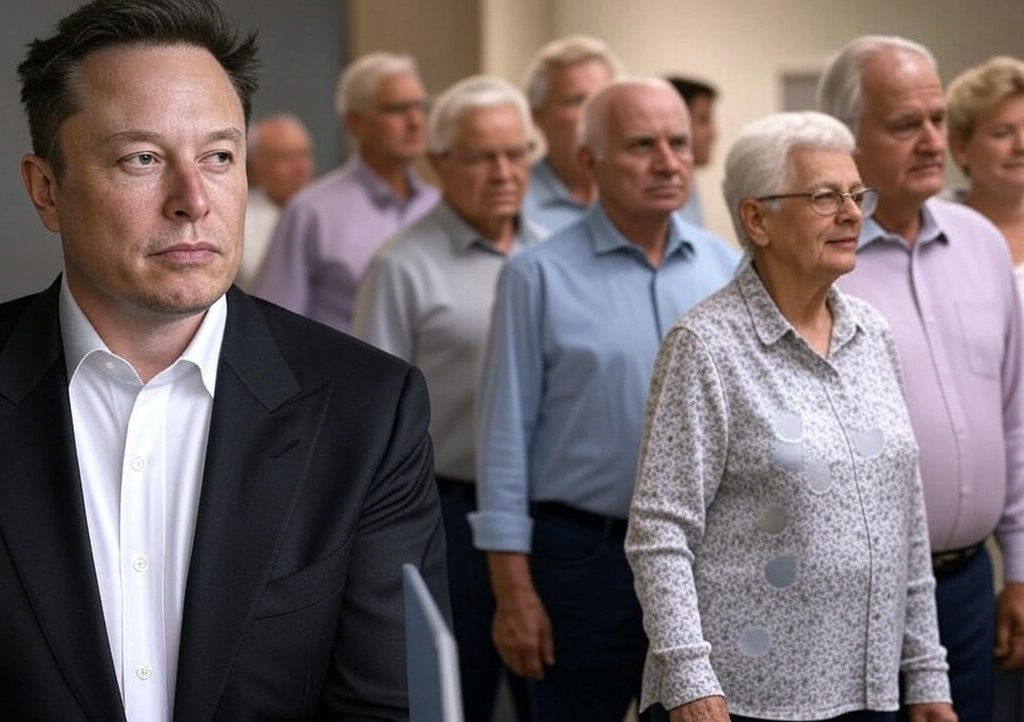The recent remarks on X from Elon Musk could be the tipping point in derailing the government funding bill. While billionaires and high-profile critics may celebrate, for everyday Americans, the potential fallout is alarming. Billionaires like Musk are insulated from the effects of a government shutdown, but millions of regular people will face dire consequences. The economic ripple effects—lost paychecks, shrinking retirement savings, and disruptions to vital services—disproportionately hurt those who rely most on government stability.
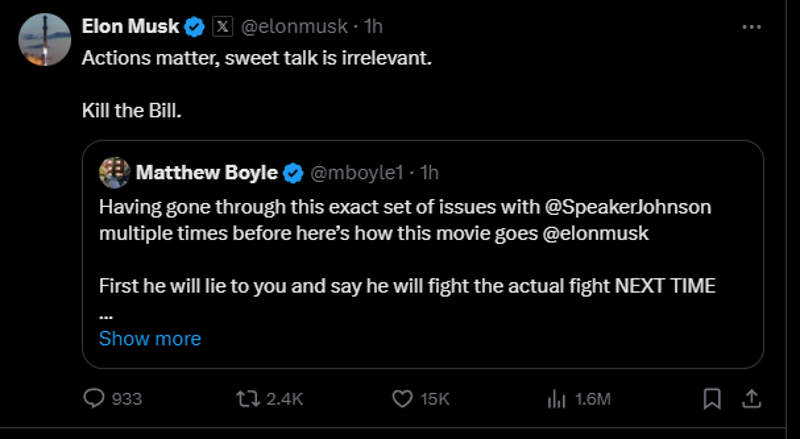
Musk called for the Bill to be killed on X. For federal employees, a shutdown means immediate financial hardship. Many are furloughed or required to work without pay, forcing families to scramble to cover basic expenses. The impact doesn’t stop with federal workers—it ripples through local economies as reduced consumer spending hits small businesses hard. While billionaires’ immense wealth shields them from these struggles, average families, dependent on steady incomes, are forced to make tough decisions about what to prioritize.
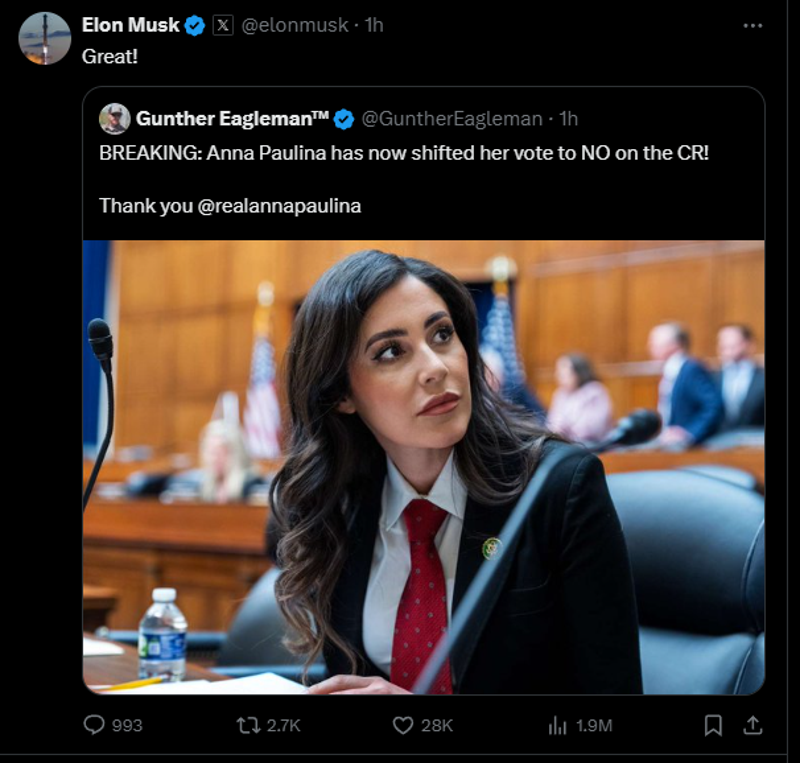
Anna Paulina changed her vote after Musk’s post. Government programs that millions depend on, such as Social Security, Medicare, and food assistance, also hang in the balance. Although current Social Security checks might still be issued, new applications or adjustments could face severe delays. SNAP benefits, which help low-income families afford food, risk being temporarily halted. These disruptions hit hardest for those living paycheck to paycheck or surviving on fixed incomes, leaving them in increasingly precarious situations.
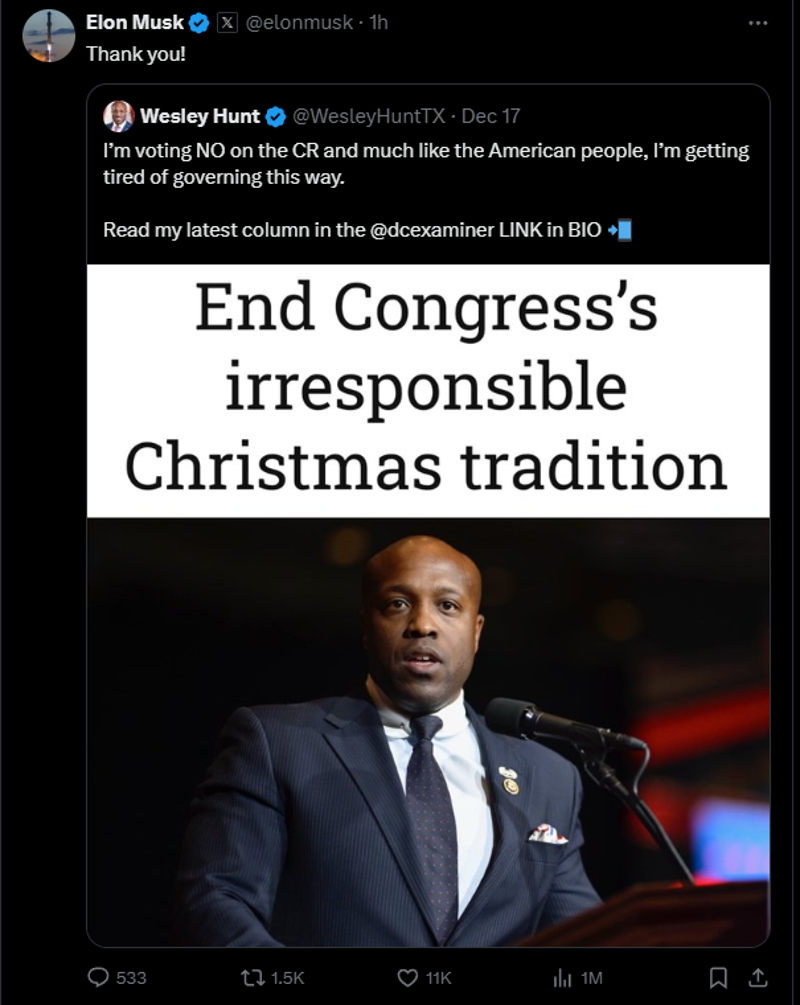
Wesley Hunt also changed his vote following Musk’s post. The financial impact extends beyond government services. A shutdown often triggers instability in the stock market, eroding investor confidence. This volatility directly affects retirement accounts like 401(k)s, which many Americans rely on for financial security. Even a short market downturn can significantly shrink these savings. For billionaires like Musk, with diversified portfolios and teams of financial advisors, such losses are manageable—or even profitable. They can capitalize on market dips by buying low, a luxury unavailable to the average worker whose future hangs in the balance.
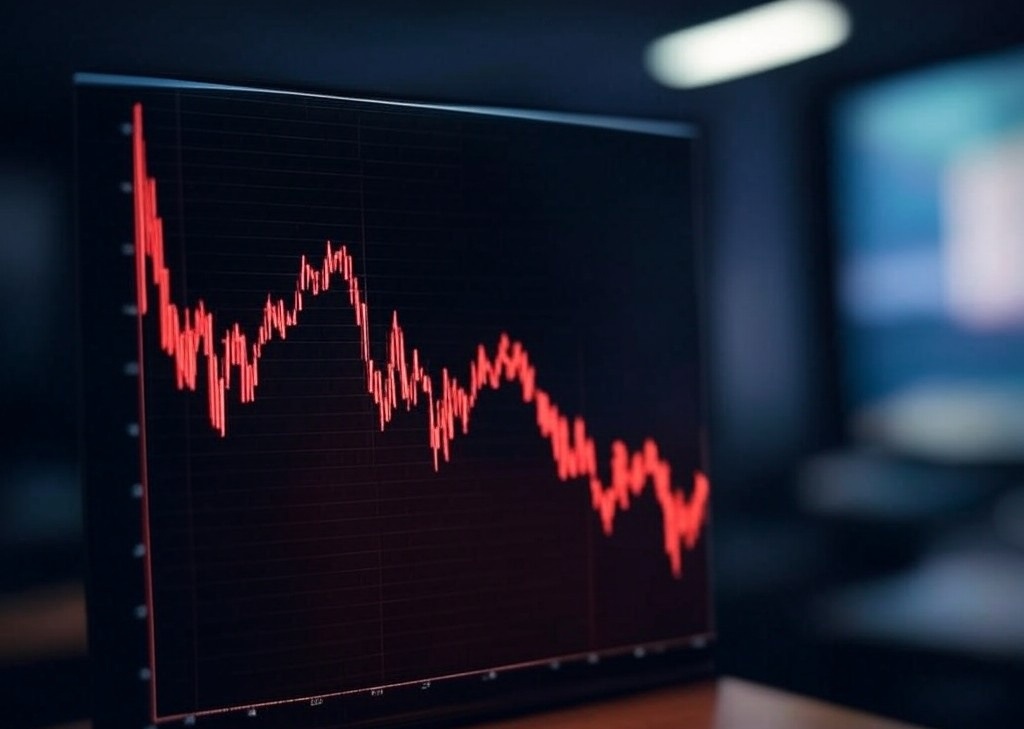
For those approaching retirement, the stakes are even higher. A sharp drop in their 401(k)s may force them to delay retirement, reduce spending, or settle for a lower standard of living. The stress of these financial pressures adds to the long-term toll, further widening the gap between the wealthiest Americans and everyone else.

A shutdown also presents opportunities for those advocating for smaller government. Musk’s stance on government efficiency, reflected in his statement, “How can this be called a ‘continuing resolution’ if it includes a 40% pay increase for Congress?” underscores his broader philosophy. While such frustrations resonate with many, this framing oversimplifies the devastating effects a shutdown has on average Americans. For billionaires, furloughing federal workers or halting programs may seem like progress, but for the millions who rely on these services, it’s a crisis.
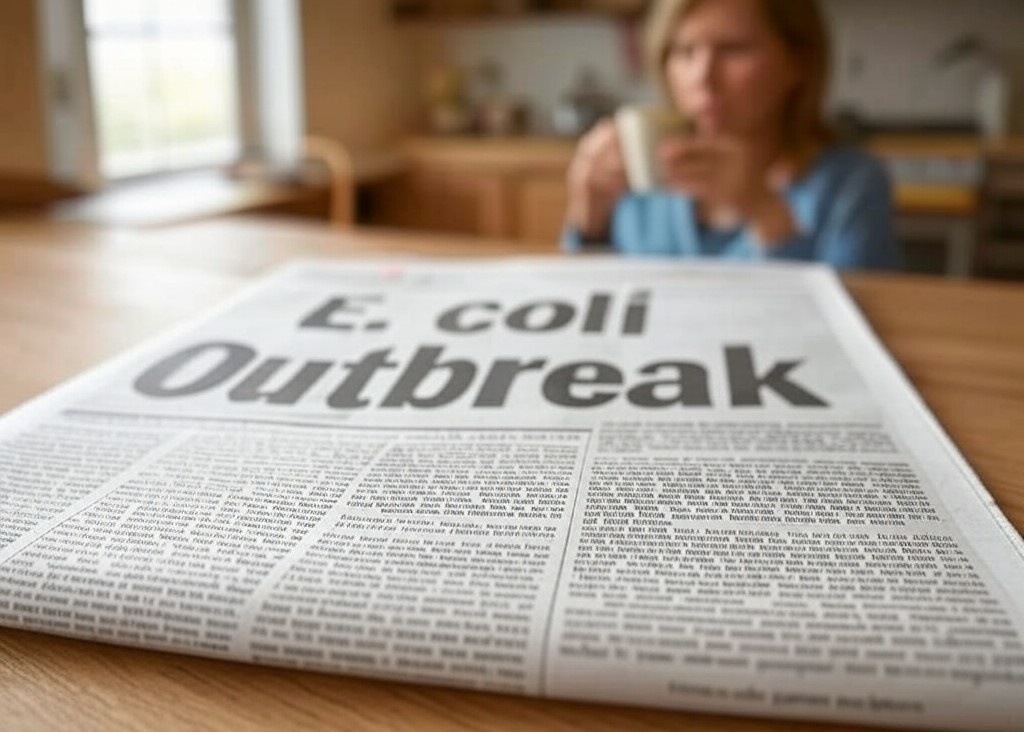
The effects extend to critical agencies like the Centers for Disease Control and Prevention (CDC) and the Food and Drug Administration (FDA). A shutdown halts their operations, delaying public health research and responses to emerging crises. These interruptions put lives at risk, creating real and immediate consequences for the public.
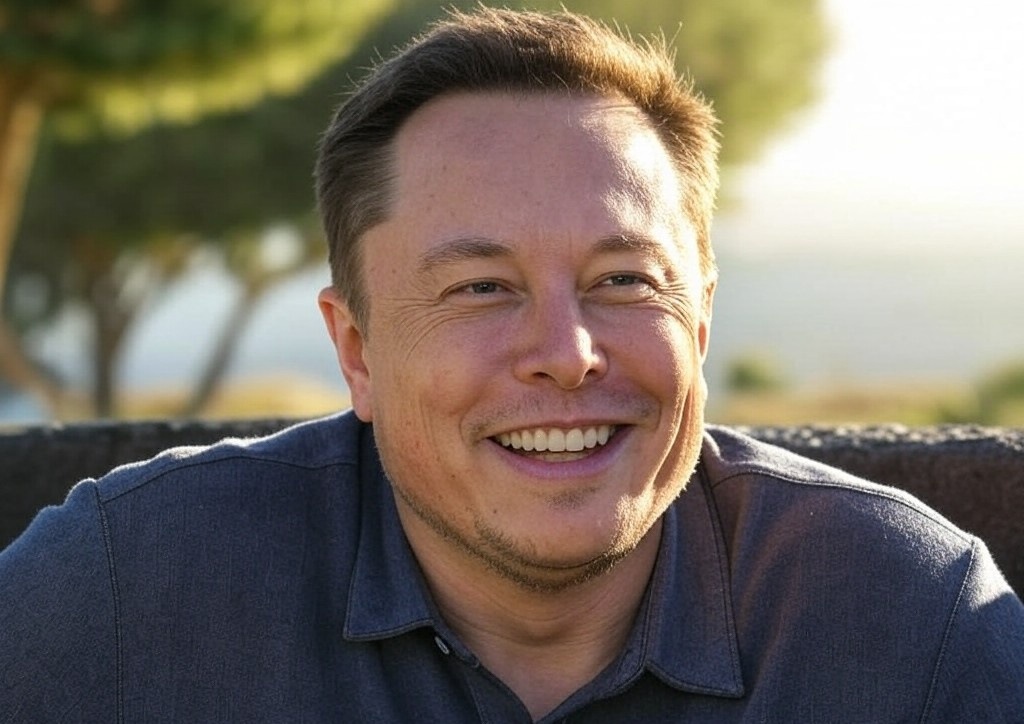
As political leaders and billionaires claim victory in defeating the funding bill, the burden falls squarely on the shoulders of those least able to bear it. This isn’t just a philosophical battle over the role of government—it’s a stark reminder of who pays the price when government fails to function. And once again, it’s not the billionaires.

